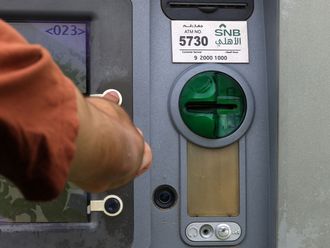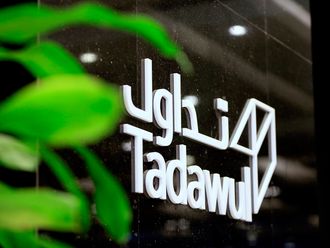Beijing: There are no quick fixes for Europe's debt crisis and China must be on its guard in case the problem escalates, especially in January and February, China's Commerce Minister Chen Deming said yesterday.
Chen was quoted in the Shanghai Securities News as saying Europe's debt problems cannot be solved by selling more government bonds and setting up a rescue fund of nearly $1-trillion (Dh3.67 trillion) as the money has to be repaid at steep interest rates.
"These measures just turn an acute disease into a chronic one, and it's really hard to say whether these countries that are in deep trouble over the debt crisis can recover in the coming three or five years," Chen was quoted as saying. He did not elaborate on the measures that he thought European officials should take.
Chen's comments were the harshest yet from a Chinese minister, a sign that patience may be wearing thin among some senior officials in China, which has invested an undisclosed portion of its $2.65 trillion reserves in the euro.
Plea for action
Earlier this week at annual EU-China trade talks, Chen urged European authorities to take "real action" to contain the debt crisis and prevent it from engulfing bigger European economies.
In part to protect its investment in the euro, China has repeatedly pledged support for the single currency, a stance reiterated by its ambassador to the European Union yesterday. "The euro will definitely tide over the current crisis," Song Zhe said in a statement on the China Foreign Ministry's website www.mfa.gov.cn.
"The euro plays an important role in stabilising the international monetary system and promoting the diversification of the international currencies."
Worried about China's reliance on the US dollar — China is the world's biggest foreign holder of US Treasuries, with nearly $907 billion in October — senior Chinese officials have advocated alternatives to the US dollar for a reserve currency.
The euro is seen by many as the most viable alternative right now. But its future has been put in doubt by investor concerns Europe officials cannot afford to rescue the bigger economies of Spain and Italy should the crisis spread.
With Portugal due to repay more than €12 billion (Dh57.74 billion) between April and June 2011, investor confidence in the euro zone will be tested in the first quarter of next year.
Market pressure on Portugal's fiscal health has intensified in recent weeks as investors worry it could be next in line for a euro zone bailout after Ireland and Greece. A Portuguese newspaper said earlier this week that China was ready to buy €4 billion to €5 billion of Portuguese government debt to shield it from funding pressures. China's central bank declined to comment on the report.












